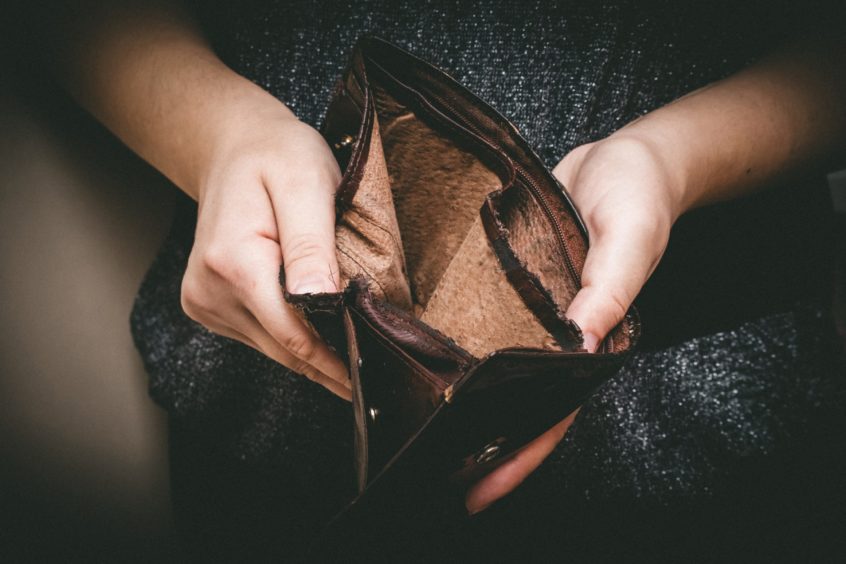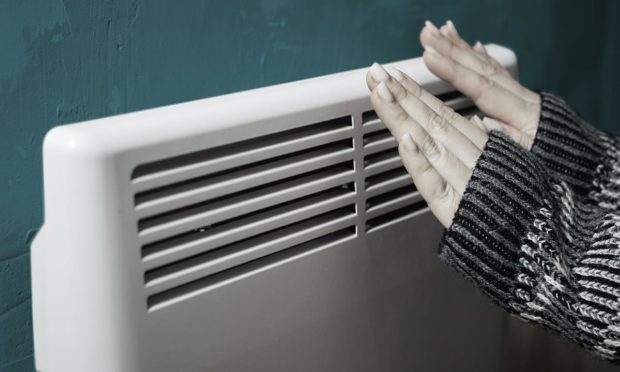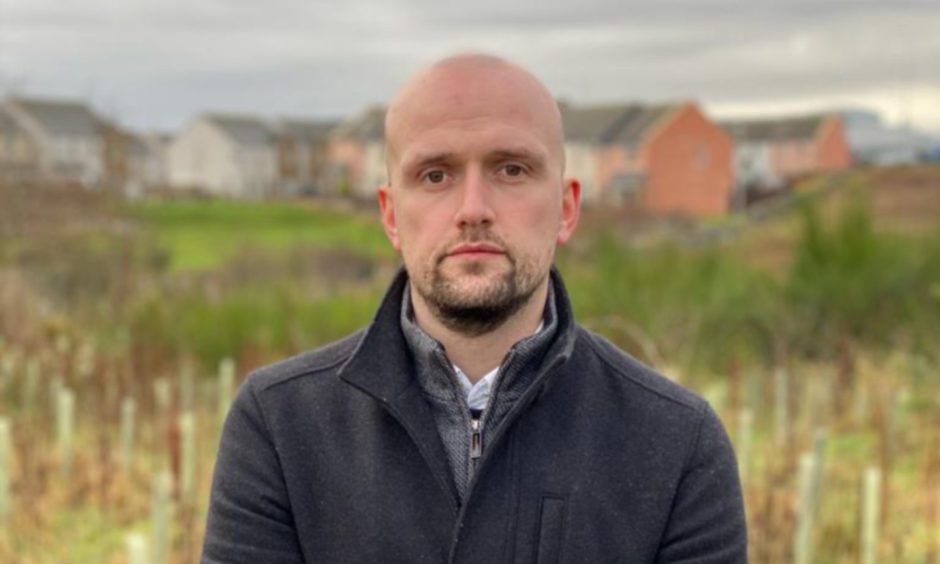Families will be forced to choose between heating and eating this winter, a leading charity has warned, with up to a quarter in some council areas facing “extreme” fuel poverty.
It comes as the energy industry faces a crisis in wholesale prices which could force charges even higher.
Frazer Scott, chief executive of Energy Action Scotland, said “skyrocketing” bills coupled with the end of pandemic support schemes and the continuation of home working will leave people facing harrowing choices during an “unpredictable” winter.
Our analysis of data from Ofgem, the government energy regulator, reveals more than a third of households in some local authority areas in Scotland are already living in fuel poverty, while nearly a quarter in others are in extreme fuel poverty.
The Scottish Government considers a household to be in fuel poverty if, after housing costs, more than 10% of its income is required to pay for reasonable fuel needs and the remaining money is insufficient to maintain an “acceptable standard of living”.
If more than 20% of the remaining income is required, the household is considered to be facing extreme fuel poverty.
Four in 10 living in fuel poverty
Our analysis shows the Western Isles has the highest rate of fuel poverty in Scotland, with 40% of people living in the Na h-Eileanan Siar area falling into that bracket.
Some 33% of people living in the Highland Council area are doing so in fuel poverty, while the figure is 32% for Moray, and 31% for each of Dundee, Orkney and Shetland.
In Aberdeen, the figure is 26%, Perth and Kinross is 25%, both Aberdeenshire and Fife are 24% – the national average, while Angus comes in just below that at 22%.
The Western Isles also has the highest level of extreme fuel poverty and more than double the national average, at 24%, while the Highlands, Orkney and Shetland came close behind at 22% each.
Moray came in at 19%, Perth and Kinross at 18%, both Dundee and Aberdeenshire at 15%, while Aberdeen is at 13%, Fife is at 11% and Angus is at 10%.
There is huge variation in the levels of fuel poverty across Scottish local authorities.
The Western Isles has the highest rate of household fuel poverty in Scotland at 40%.
The Scottish Government set statutory targets in 2019 that by 2040 no more than 5% of households should be in fuel poverty, and no more than 1% should be in extreme fuel poverty. These targets must be met in each of Scotland’s 32 council areas.
Living ‘off the gas grid’
Energy Action Scotland said households living “off the gas grid“, not connected to the national mains gas network, often struggle most to cope with fuel costs.
Our analysis found many areas with the highest rate of households living off the grid, such as the Highlands and Islands, also had the largest number in fuel poverty.
Mr Scott said: “The emerging picture within the energy market is genuinely alarming.
“As energy prices skyrocket we are seeing inflation rising, the end of the UK job retention scheme as well as the removal of the £20 per week Universal Credit uplift, all as the unpredictable winter arrives.
“Many people are still working from home and that will add to already escalating financial pressures on households.

“Families are making daily decisions between heating and eating, they are rationing energy as they struggle to afford the energy to cook or to provide hot water for washing.
“This is simply unacceptable in 2021.”
Mr Scott said that while the average UK dual fuel bill comes to £1,138, Scottish consumers face an average bill of £1,759 – and for those with electricity only, the figure rises to a “staggering” £2,276.
A matter of urgency
Energy Action Scotland is calling for a fuel poverty strategy “as a matter of urgency” and insisted the current actions being taken in Scotland “are having almost no impact.”
The Scottish Government could not be reached for comment.
Kate Morrison from Citizens Advice Scotland said fuel poverty rates in Scotland are already “unacceptably high” but people will face a “perfect storm” this autumn as energy bills rise, furlough ends, and Universal Credit is cut by £20 per week.
“That is going to leave household budgets under unsustainable pressure,” she said.
“Broader issues within the global energy market and the wholesale cost of gas may also mean switching to get better deals may become more difficult for some.”
Ms Morrison called for the Universal Credit cut to be cancelled as part of a package of measures to ensure all consumers have access to affordable energy.
The SNP’s energy spokesman, Stephen Flynn, made a similar call on Monday amid growing concern over the looming gas supply crisis.
Calls for new energy payment
Mr Flynn called for the UK Chancellor, Rishi Sunak, to introduce an emergency package of measures to boost household incomes, including an energy payment for lower income families – although it would not say how this should operate.
With energy bills soaring, Mr Flynn said Boris Johnson had broken his pledge to make energy bills cheaper after Brexit and is instead hammering low and middle income families with a “toxic concoction” of cuts and tax hikes.
“The urgent need to boost household incomes, and reverse rising levels of poverty in the UK, will be the central issue in the upcoming budget,” he said.
“It is essential that an emergency package of measures is introduced to boost incomes and reverse the damage caused by Tory policies.
“A decade of Tory cuts and regressive tax rises has left millions of families poorer and worse off.
“The UK has the worst levels of poverty and inequality in north west Europe – and under Boris Johnson in-work poverty has risen to record levels this century.
“Urgent action is needed.”
Countless opportunities missed
Scottish Conservative MSP for the North East, Maurice Golden, said the SNP had missed “countless opportunities” to use the Scottish Government’s powers to protect against soaring bills and urged Mr Flynn to question his own party colleagues.
He said the SNP are “on course to spectacularly miss their renewable heat target, have abandoned their not-for-profit energy company, and shelved the warm homes bill promised in 2016”.
“All of these could help reduce domestic energy costs, particularly in the rural areas where fuel poverty is highest,” he said.
“Stephen Flynn should be asking questions of his MSP colleagues instead of making garbled claims without substance or detail.”
A UK Government spokesman said the £20 Universal Credit uplift was “always temporary” to help claimants through the economic shock of the toughest stages of the pandemic.
He added: “The Government is committed to ensuring fairness for all energy users and to working with industry and consumers to keep bills down and identify how costs can be allocated in a way that drives decarbonisation.”

